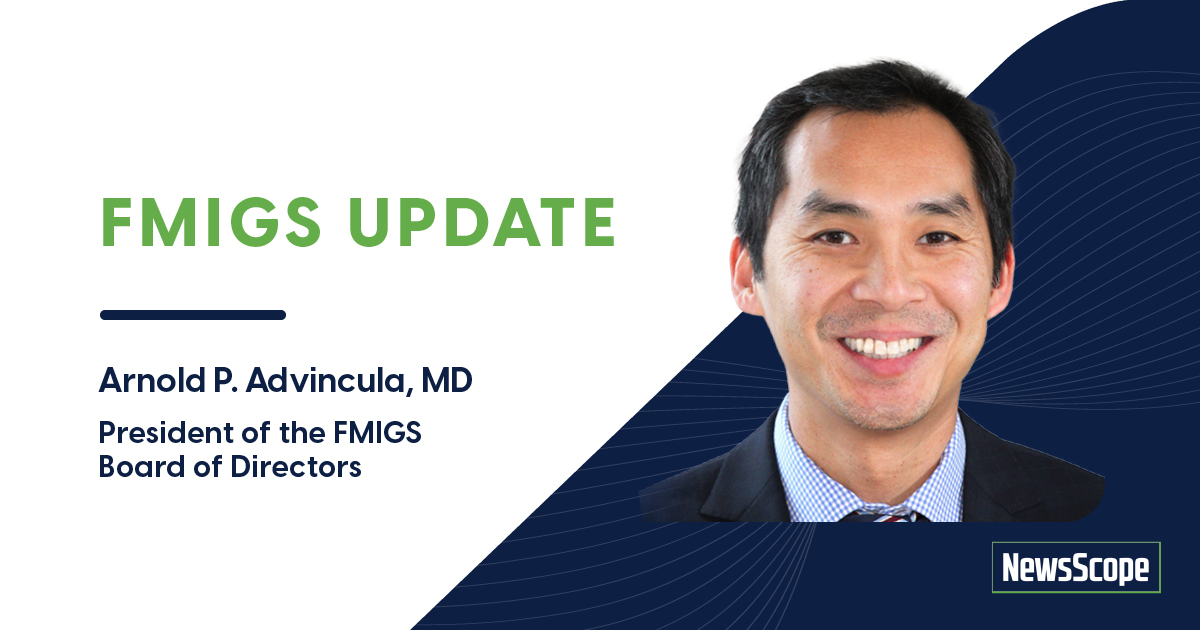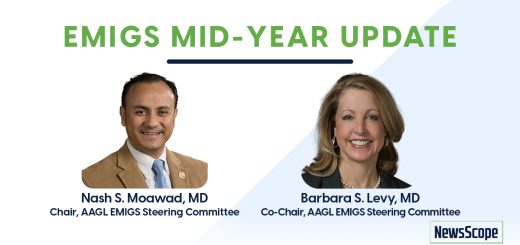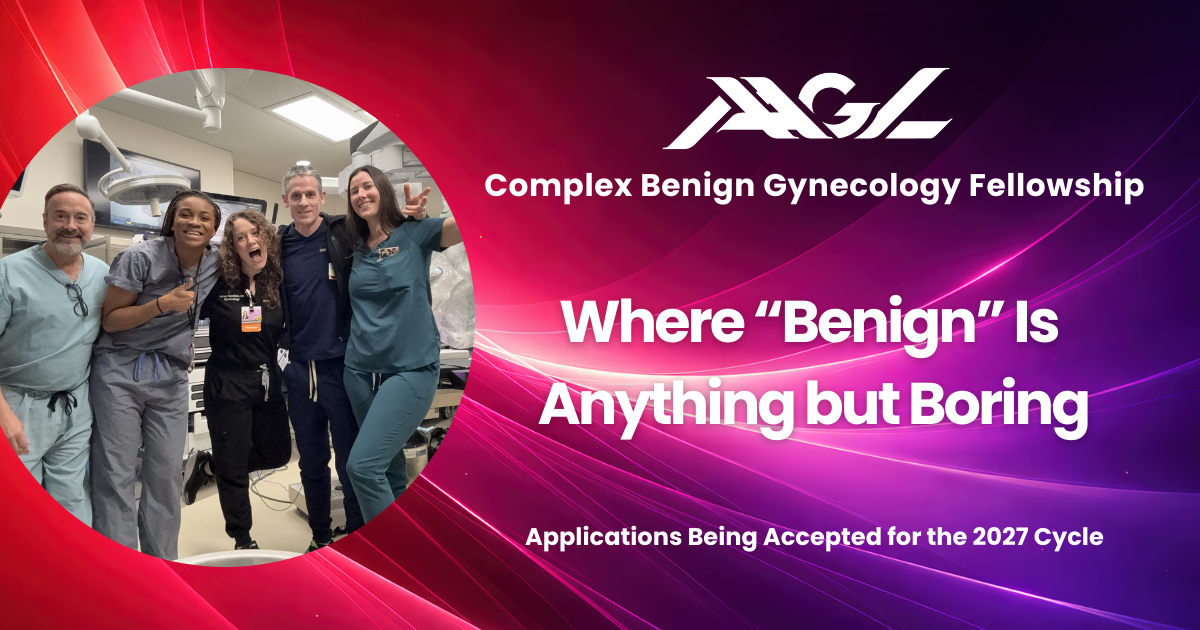Historical Developments in FMIGS
As President of the Fellowship in Minimally Invasive Gynecologic Surgery (FMIGS) Board of Directors, it gives me great pleasure to provide you with an update on our activities and initiatives over the last 6 months. First and foremost, I would be remiss if I did not acknowledge how much of an honor and privilege it is to work alongside an incredibly talented board that tirelessly champions the advancement of the fellowship and women’s health.
Since the inception of FMIGS in 2001, its core mission has been to provide obstetrician-gynecologists with subspecialist training in advanced gynecologic surgery. Over time, what initially began as a 1-year fellowship evolved into a mandatory 2-year fellowship with required participation in the National Residency Matching Program (NRMP) in 2013. Since that change, the popularity of this training program amongst residency graduates has only grown and continually placed FMIGS amongst the most competitive obstetrics and gynecology fellowship matches since 2016. As the form and function of these fellowships has matured, graduates of these, now nearly 60, programs have gone on to impact gynecologic surgical care by advancing minimally invasive techniques, while at the same time focusing greater attention on complex presentations of conditions such as endometriosis, uterine fibroids, abnormal uterine bleeding, and chronic pelvic pain.
Central to our efforts this year has been our focus on formally pursuing subspecialty recognition. This initiative began with an understanding that to achieve Accreditation Council for Graduate Medical Education (ACGME) recognition, our fellowships would not only need to mirror pre-existing ACGME fellowships in structure but also emphasize expertise in a distinct body of knowledge and not a route of surgery. This journey began several years ago with an overhaul and realignment of the FMIGS milestones around subject matter expertise. This was soon followed this year by a change in the name of the fellowship to Complex Gynecology and a requirement by 2025 that all Program Directors be fellowship trained in what was historically known as FMIGS. Additional requirements introduced this year that further aligned FMIGS with pre-existing ACGME fellowships, were compliance with the August 1st fellowship start date, and support of the American Board of Obstetrics & Gynecology (ABOG) Leave of Absence Policy.
Although much has been accomplished thus far to elevate gynecologic surgery through the existence of FMIGS, the work is far from done. The importance and urgency of formal subspecialty recognition in complex gynecology is now even greater amidst the backdrop of a rapidly changing landscape in women’s healthcare. The waning sustainability of a complex gynecology-focused practice without a distinct taxonomy code, historically underfunded research in women’s health, known patient inequities in minimal access surgery, and antiquated residency surgical training paradigms, all pose significant challenges to gynecologic care. By creating a jurisdiction around a distinct body of knowledge that complements the role of the specialist obstetrician-gynecologists and synergizes with the other subspecialists within the totality of the field, the quality of gynecologic care can be further elevated as gaps are addressed. This north star serves as our guiding light and with that, I am proud to say that this May the FMIGS Board of Directors, with the support of the AAGL, formally submitted to ABOG our letter of intent to pursue subspecialty recognition in Complex Gynecology, along with a request to facilitate our application to the American Board of Medical Specialties (ABMS).
As we await next steps from ABOG, we have established several fellowship transition working groups, along with a subspecialty recognition task force that I am chairing. I look forward to providing all of you with ongoing updates as we embark on this journey to further elevate gynecologic care and hope to see you in Nashville in November.








